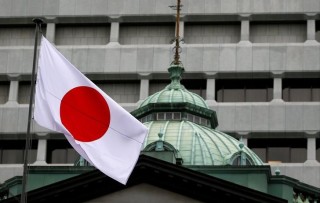Loading
Search
▼ BOJ Adds Long-term Interest Rate Target to Massive Asset-buying Program
- Category:Other
TOKYO — The Bank of Japan overhauled its monetary policy framework on Wednesday, switching to targetting interest rates and sidelining more than three years of massive money printing that did little to jolt the economy out of a decades-long funk.
But the BOJ held off on deepening negative interest rates or expanding its asset purchase target, saying the modification was aimed at resetting its stimulus program for a protracted battle to hit and then keep to its 2% inflation goal.
Japanese stocks rose and the yen fell on hopes that the BOJ’s decision to reset its stimulus program would ease pressure on the country’s banks and insurers, although some analysts doubted whether the move would have a lasting positive impact on financial markets.
“The impression is that the BOJ is starting to pull back some of its troops from the battlefront,” said Katsutoshi Inadome, senior fixed-income strategist at Mitsubishi UFG Morgan Stanley Securities. “The markets could now begin testing the BOJ’s commitment to its price target in the next few months.”
Kuroda said directly targetting interest rates could work more effectively to raise inflation expectations than focusing on base money.
“It’s very effective in the long-term perspective. But in the short term, there isn’t a clear link between the base money target and inflation expectations,” Kuroda told a news conference. “That’s why the new policy framework can respond to changes in the economy and prices more flexibly.”
At the two-day rate review that ended on Wednesday, the BOJ abandoned its base money target and instead adopted “yield curve control” under which it will buy long-term government bonds to keep 10-year bond yields at current levels around zero percent.
It will continue to buy long-term government bonds at a pace that ensures its holdings increase by 80 trillion yen ($781 billion) per year, and maintained the 0.1 percent negative interest rate it applies to some of the excess reserves that financial institutions park with the central bank.
Under the new framework that adds yield curve control to its current quantitative and qualitative easing (QQE) regime, the BOJ could deepen negative rates, lower the long-term rate target, or expand base money if it were to ease again, the central bank said in a statement announcing the policy decision.
“The BOJ will seek to lower real interest rates by controlling short-term and long-term interest rates, which would be placed at the core of the new policy framework,” it said.
(c) Copyright Thomson Reuters 2016.
But the BOJ held off on deepening negative interest rates or expanding its asset purchase target, saying the modification was aimed at resetting its stimulus program for a protracted battle to hit and then keep to its 2% inflation goal.
Japanese stocks rose and the yen fell on hopes that the BOJ’s decision to reset its stimulus program would ease pressure on the country’s banks and insurers, although some analysts doubted whether the move would have a lasting positive impact on financial markets.
“The impression is that the BOJ is starting to pull back some of its troops from the battlefront,” said Katsutoshi Inadome, senior fixed-income strategist at Mitsubishi UFG Morgan Stanley Securities. “The markets could now begin testing the BOJ’s commitment to its price target in the next few months.”
Kuroda said directly targetting interest rates could work more effectively to raise inflation expectations than focusing on base money.
“It’s very effective in the long-term perspective. But in the short term, there isn’t a clear link between the base money target and inflation expectations,” Kuroda told a news conference. “That’s why the new policy framework can respond to changes in the economy and prices more flexibly.”
At the two-day rate review that ended on Wednesday, the BOJ abandoned its base money target and instead adopted “yield curve control” under which it will buy long-term government bonds to keep 10-year bond yields at current levels around zero percent.
It will continue to buy long-term government bonds at a pace that ensures its holdings increase by 80 trillion yen ($781 billion) per year, and maintained the 0.1 percent negative interest rate it applies to some of the excess reserves that financial institutions park with the central bank.
Under the new framework that adds yield curve control to its current quantitative and qualitative easing (QQE) regime, the BOJ could deepen negative rates, lower the long-term rate target, or expand base money if it were to ease again, the central bank said in a statement announcing the policy decision.
“The BOJ will seek to lower real interest rates by controlling short-term and long-term interest rates, which would be placed at the core of the new policy framework,” it said.
(c) Copyright Thomson Reuters 2016.
- September 22, 2016
- Comment (0)
- Trackback(0)


